

Project Build Up
Strengthen the capacity of your outpatient substance use or gambling treatment agency to provide or promote problem gambling treatment services. Project Build Up (PBU) is focused on helping your agency create culturally responsive practices that address health and racial equity to support communities that are disproportionately impacted by problem gambling.
Project Build Up (PBU) is a Grant and Community Support Initiative funded by the Massachusetts Department of Public Health’s (MDPH) Office of Problem Gambling Services (OPGS) and administered by Health Resources in Action (HRiA).
Communication Resources for Providers
These resources are intended to provide communication guidance for BSAS-funded providers and programs to promote problem gambling services.
Resources include:
- General guidance for communication and promotional activities
- Messaging that can be used in communication or promotional activities
- Content and images for use on websites and social media
- Downloadable promotional postcards (also available for order through the Massachusetts Health Promotion Clearinghouse)
Communications content, materials, and activities should focus on:
- Increasing awareness of the signs of problem gambling
- Increasing the belief that gambling can become problematic before becoming a catastrophic crisis
- Increasing awareness that there are treatment services that can help
- Increasing the belief that problem gambling is a mental health condition (not a personal weakness) to decrease shame and stigma
- Appealing to people’s motivations for seeking services – such as alleviating their concerns about finances, family relationships, and the stress and anxiety they may experience around gambling – can be effective.
Audiences: Who to reach
Current or prospective clients
Getting the attention of people experiencing problem gambling is key, and many of these individuals may also be experiencing substance use disorder or other behavioral health issues; in other words, they may already be current or prospective clients of your program. Conducting problem gambling screenings with current clients is one way to identify individuals who experience these co-occurring disorders. It’s also important to prominently feature your problem gambling treatment services in any communications about your services – on your website, in social media, in print materials, or in person.
Family, friends, loved ones
Reaching concerned family members or friends, who can be major influencers in the lives of people experiencing problem gambling, is an opportunity to raise awareness about problem gambling and treatment services. Loved ones may see or experience the signs of problem gambling before the individual does or suspect a hidden problem. As influencers, they may be able to encourage their loved one to seek treatment and seek support for themselves.
Providers or other referrers
Providers and other referrers are an audience to consider targeting with information about problem gambling, signs and symptoms, and how to refer patients and clients to your program.
Communication channels: Ways to reach your audiences
A clear presence and consistent messaging throughout all your program’s communication channels and activities will help to build awareness, drive people to your program (via website or phone) and ensure that people can find relevant services and resources. This includes your program’s:
- Website: Make sure that problem gambling services are easily accessible in site navigation. Draw attention to problem gambling services with features/banners on your program’s home page. Consider featuring problem gambling information and services in blog content. These steps will also help to improve your program’s search results in search engines such as Google.
- Social media: Regular posts about problem gambling and related services helps to keep this “top of mind” when someone may be ready to seek services. Social media content about problem gambling also ensures that someone seeking problem gambling information on a particular social media platform will find your program.
- Printed materials and paid advertising: Call out problem gambling services and use consistent messaging and information about your program.
- Outreach activities: Call out problem gambling services and use consistent messaging and information about your program. Aim to incorporate motivational interviewing techniques to facilitate engagement.
- Email communication (such as e-newsletters): Feature problem gambling content regularly.
Suggested messaging, website and social media content and images, email content, and a promotional postcard available in multiple languages, can be found in the Key Messaging and Content and Materials sections of this page.
Tips for messaging and visual design: How to effectively reach your audiences
Language
Shame and stigma can cause people to hide problems and prevent them from seeking help, and for families and communities to not address problem gambling. Use language that doesn’t stigmatize by:
- Framing problem gambling as a behavioral health disorder (“mental health condition” in more common terms) like substance use disorder, requiring support and treatment
- Avoiding language that places blame on the individual or implies that problem gambling is the result of character failings or flaws (ex. use “disorder” instead of “abuse”)
- Using person-first language (ex. A person experiencing problem gambling, a person with a gambling disorder)
- Using morally neutral terminology, such as “resumed” or “recurrence” instead of “relapsed” or “slip”
Learn more about de-stigmatizing language and alternate terminology you can use.
Imagery
Many populations are impacted by problem gambling, and imagery should reflect that. At the same time, it is important to be sensitive to singling out any group of people. To be effective, it is recommended that programs:
- Aim for diversity in imagery, over time; do not feel the need to depict every possible target population in one image
- Be sensitive to over-representation of any one group to prevent any audiences from feeling “singled out” or stigmatized
Additionally, it is recommended that programs:
- Avoid using images that contain depictions of gambling. Instead, focus on images that evoke positive feelings and motivate action-taking
How to build upon this content
Individual testimonials and personal stories are highly effective ways to get attention and create emotional connections. Quotes, stories, and images are ideal to feature on websites, in social media, and in outreach activities. When possible, supplement quotes and stories with photos and/or names (even just a first name) to help in de-stigmatizing problem gambling.
- Gather compelling quotes from program staff, referring providers, and/or clients
- Go deeper and tell a client story
Technical assistance for communications support
HRiA offers technical assistance to support programs effectively communicate about their problem gambling services. Use the contact form at the bottom of this page to request TA for communications support such as:
- How to best incorporate content into your program’s website, including technical website needs
- How to use the social media toolkit provided, including developing or further developing your program’s social media presence
- How to optimize your website for search engines (such as Google)
- How to capture a client or provider story/testimonial or develop other content ideas
Below is an overview of messaging about problem gambling that programs can use in any communication or promotional efforts.
Key message: Gambling can be a problem before it becomes a disaster.
Problem gambling is any gambling that negatively impacts your life. This behavior can harm your personal, financial, or family well-being. Signs of problem gambling include:
- Constantly thinking about gambling
- Feeling the need to take bigger risks and bet bigger amounts of money
- “Chasing your losses” or taking bigger risks to win back money after big losses
- Feeling irritable when trying to cut down or stop gambling
- Making multiple unsuccessful attempts to stop gambling
- Lying to family or friends about how much you gamble
- Endangering or losing your job or relationships due to gambling
- Having to borrow money to make up for gambling losses
Gambling is often used to shift our attention or escape from everyday life. Gambling offers the thrill of chasing a “big win,” and for those dealing with financial insecurity, it offers hope for a big payday. When we win in gambling, the pleasure centers of our brains are activated, and we have the urge to seek more rewards. Problem gambling often goes hand in hand with other behavioral or mood disorders. People with problem gambling may suffer from substance use disorders, depression, and anxiety, among other disorders. It is important to address all underlying causes to properly manage problem gambling.
Problem gambling often goes untreated because unlike other disorders, including substance use, problem gambling doesn’t have physical signs or symptoms. It can be easy to hide financial troubles, and many people won’t recognize that they have a problem until they face a significant loss, like losing their job or their home due to gambling. People experiencing problem gambling may also feel shame or the stigma that comes with problem gambling. Fear of being judged by friends and family can cause people to continue hiding their problem.
Key message: Any kind of gambling can become problem gambling.
Gambling takes many forms that some people might not even think of as risk-taking gambling behavior. Gambling is often seen as acceptable and may be considered as a social activity and entertainment in many cultures. All these forms of gambling can lead to problem gambling:
- Casino card games (poker, blackjack)
- Casino table games (craps, roulette)
- Sports betting, including online fantasy sports betting
- Lottery (state, national)
- Online and mobile games
- Bingo
- Horse or dog race betting
- Raffles
Key message: Anyone can experience problem gambling.
Not everybody who gambles develops problem gambling. But some factors do make certain people more likely to develop a gambling problem, including:
- Gender: Men are more likely to develop problem gambling than women.
- Family/cultural influence: If you have family members who have a gambling problem, or come from a culture where gambling is common, you are at higher risk.
- Socioeconomic status: People who live in lower socioeconomic areas are more likely to experience problem gambling.
- Unmanaged behavioral disorders: If you suffer from unmanaged disorders like depression, compulsive behavior, or substance use disorder, you are more likely to gamble in ways that could lead to problem gambling.
- Access: If you have easy access to your preferred form of gambling, for instance if you live close to a casino, it is easier to engage in continuous gambling that can lead to a problem.
Key message: Understanding the signs of problem gambling is key to getting help.
A brief screener can help people decide whether to seek services.
- During the past 12 months, have you become restless, irritable, or anxious when trying to stop/cut down on gambling? (yes/no)
- During the past 12 months, have you tried to keep your family or friends from knowing how much you gambled?
- During the past 12 months, did you have such financial trouble as result of your gambling that you had to get help with living expenses from family, friends, or welfare?
A “yes” response to any one of these items suggests a possible gambling problem and the need for evaluation by a professional.
Key message: Problem gambling is a mental health condition like other addictions, requiring support and treatment.
Some people with problem gambling do not realize it, and some may be aware but still be in denial. The first step to seeking treatment is to acknowledge the problem.
If you think someone you love may have a gambling problem, it is important to be supportive. Let your loved one know that you are there to support them as they try to address their gambling problem.
Understanding the effect their actions have on loved ones can be an effective wake-up call for people with problem gambling. Calmly explain how gambling is affecting you and your family or leading to other consequences.
Help your loved one seek treatment and be patient with them. Pushing a loved one too hard can have a negative impact on their recovery journey.
It’s also important that you take care of yourself, so consider Gam-Anon (for family members) or ask us about support for loved ones.
Key message: Problem gambling can be treated, and you can recover.
Many people successfully recover from problem gambling, and you can get treatment tailored to your needs. A certified problem gambling program can help you create your recovery plan, and everyone’s path to recovery is different.
Outpatient programs: Certified outpatient problem gambling programs are found throughout Massachusetts. These programs are often held at a hospital, health centers, or provider offices. They typically offer a variety of therapies, including cognitive behavioral therapy, which focuses on the relationship between thoughts, feelings and actions.
Support groups: Some people find groups such as Gamblers Anonymous to be helpful in their recovery. Much like Alcoholics Anonymous, they offer 12-step fellowship programs with others in recovery who act as sponsors to offer support and guidance.
Images for program websites
Problem gambling services-focused banners
The images below read “Problem gambling does not have to cost you the things that matter most. Learn more about services that can help.” They feature different populations affected by problem gambling. Use these banners on your program’s home page or services page and link the image to your problem gambling services information.
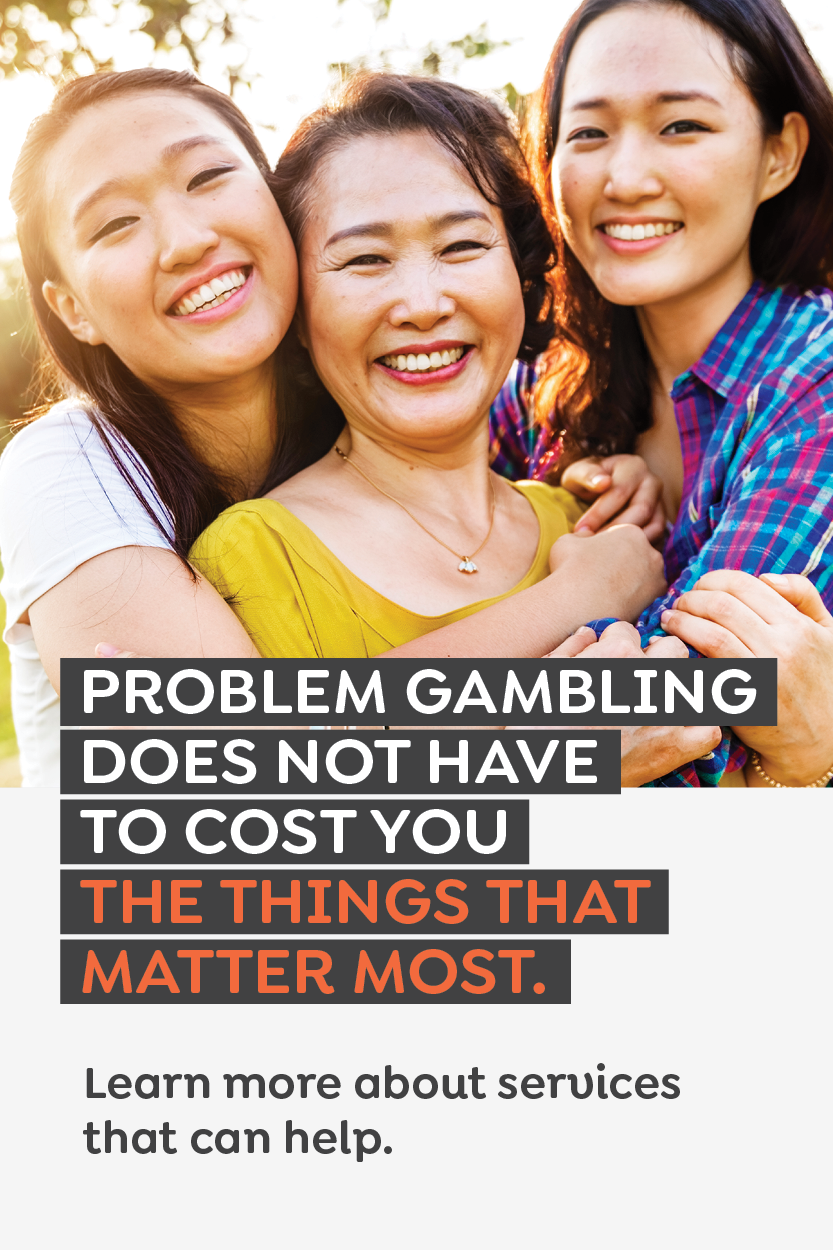
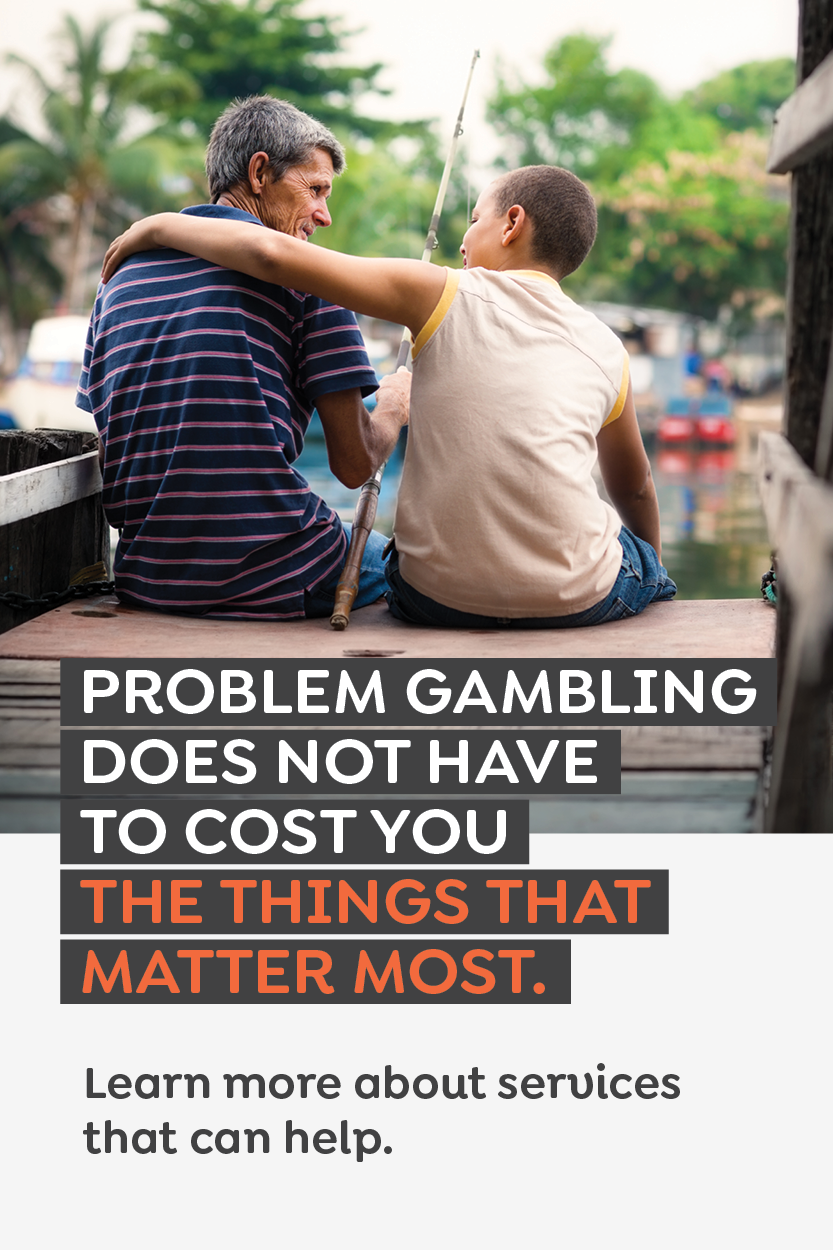



Download all Services banners.
Brief Biosocial Gambling Screener (BBGS) banners
The banners below feature 3 questions from the BBGS, and “If you answered yes to any one question, learn more about services that can help.” Use these banners on your program’s home page or services page and link the image to your problem gambling services information.
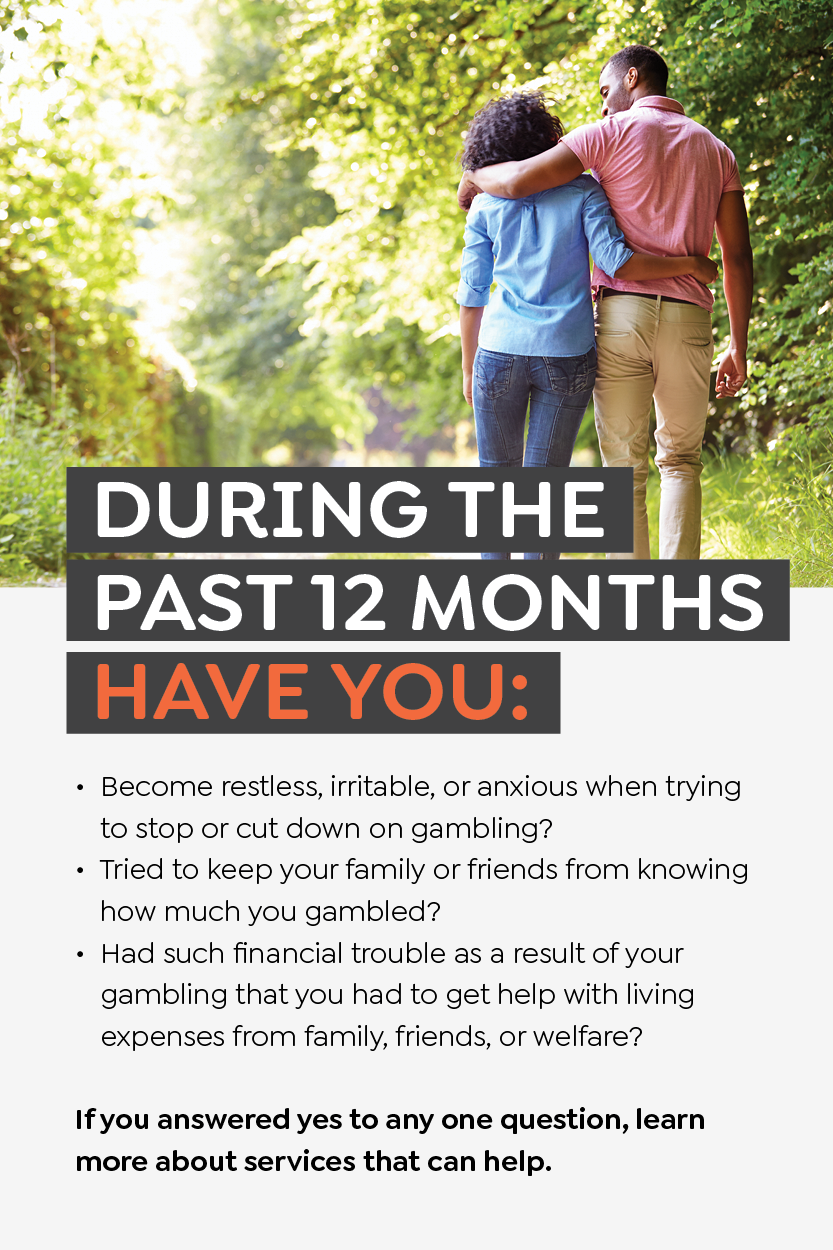
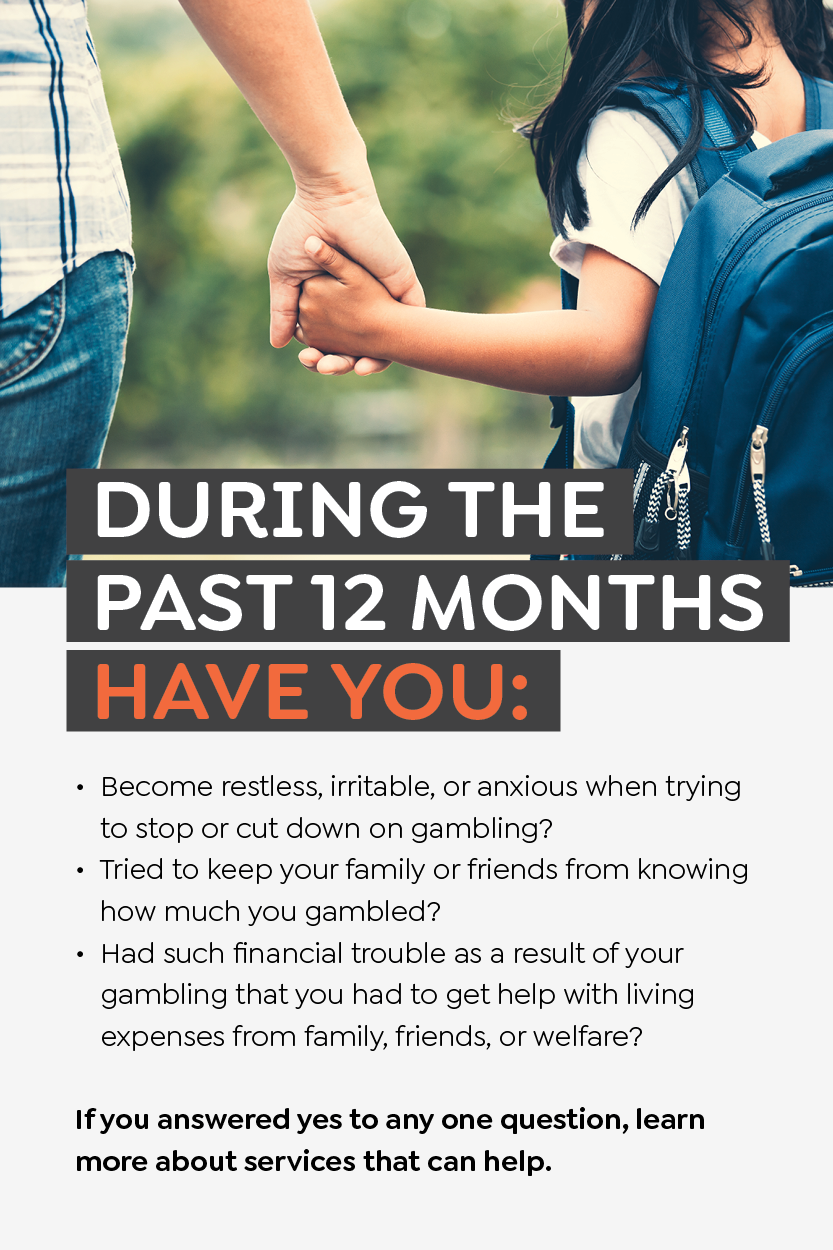
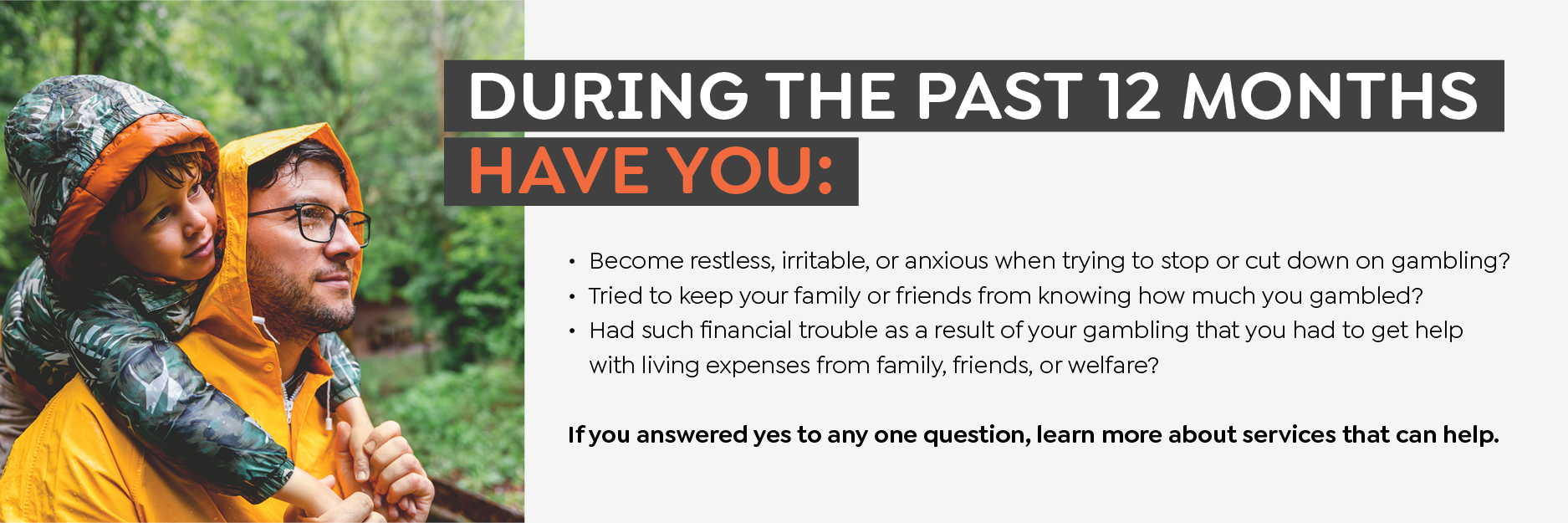
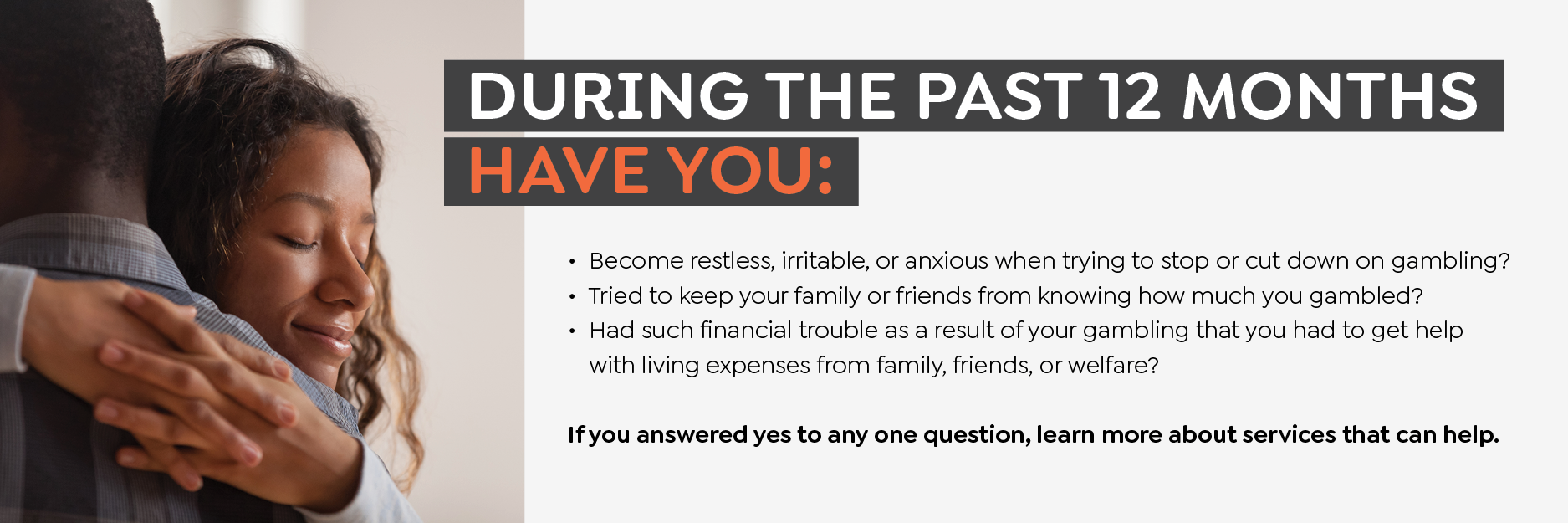
Copy for Program Websites
The suggested content below is intended to provide a brief overview of problem gambling and to promote your program’s problem gambling services. We strongly suggest including “Certified problem gambling treatment” in your program’s website navigation to ensure those looking for services can easily find them. Suggested content for use on program website:
Problem gambling is gambling that negatively impacts one’s life. This behavior can harm one’s personal, financial, or family well-being. Problem gambling can cause someone to be anxious and irritable, to lie to loved ones, and to take bigger and bigger financial risks. Problem gambling is a mental health condition and requires treatment and support like other addictions, including substance use disorder. And like substance use disorder, problem gambling can be treated, and people do recover.
Our certified problem gambling specialists will evaluate your symptoms and assess your needs. We will work with you to create a treatment plan and provide outpatient services in one-on-one or group settings and help you to access other services that will help with your recovery.
Copy for blogs, newsletters, or other communication channels
The copy below can be used to raise awareness of problem gambling and promote your program’s problem gambling services in blogs, newsletters, or other communication channels. A short version and a long version are provided to best fit the communication channel of your choosing.
Short version
Gambling is often thought of as a fun social activity or form of entertainment, but for some, gambling can cause real problems. It can affect family, personal, or professional relationships, finances, and emotional wellbeing. Problem gambling is a mental health condition, but with treatment and support, many people successfully recover. If you are worried about your own gambling, there is help. Our certified problem gambling specialists will work with you to create a recovery plan that’s right for you. Learn more at [insert a link to your program’s problem gambling web page here].
Long version
Gambling is often thought of as a fun social activity or form of entertainment, but for some, gambling can cause real problems. These problems might not be noticeable right away, but without help, they can become bigger issues that affect family, personal, or professional relationships, finances, or emotional wellbeing. A person experiencing problem gambling might think about gambling constantly, take bigger risks or bet more money, try to cut back or stop gambling many times but feel irritable when they do, find themselves lying to family or friends about their gambling, need to borrow money, or even endanger or lose their job or relationships.
Problem gambling is a mental health condition, and anyone can experience it. Some factors, like substance use disorders, make certain people more likely to develop a gambling problem. Like other addictions, problem gambling requires treatment and support, and many people successfully recover. Every path to recovery is different and may include outpatient programs and support groups.
If you are worried about your own gambling, there is help. Our certified problem gambling specialists will work with you to create a recovery plan that’s right for you. Learn more at [Insert a link to your program’s problem gambling web page here].
Social media toolkit
This social media toolkit contains a variety of images for download and copy that you can use on your social media channels. Images are sized for Facebook and Twitter feeds and images and copy can be mixed and matched.
Images for Facebook (1200 x 630) – Click to download all Facebook images.
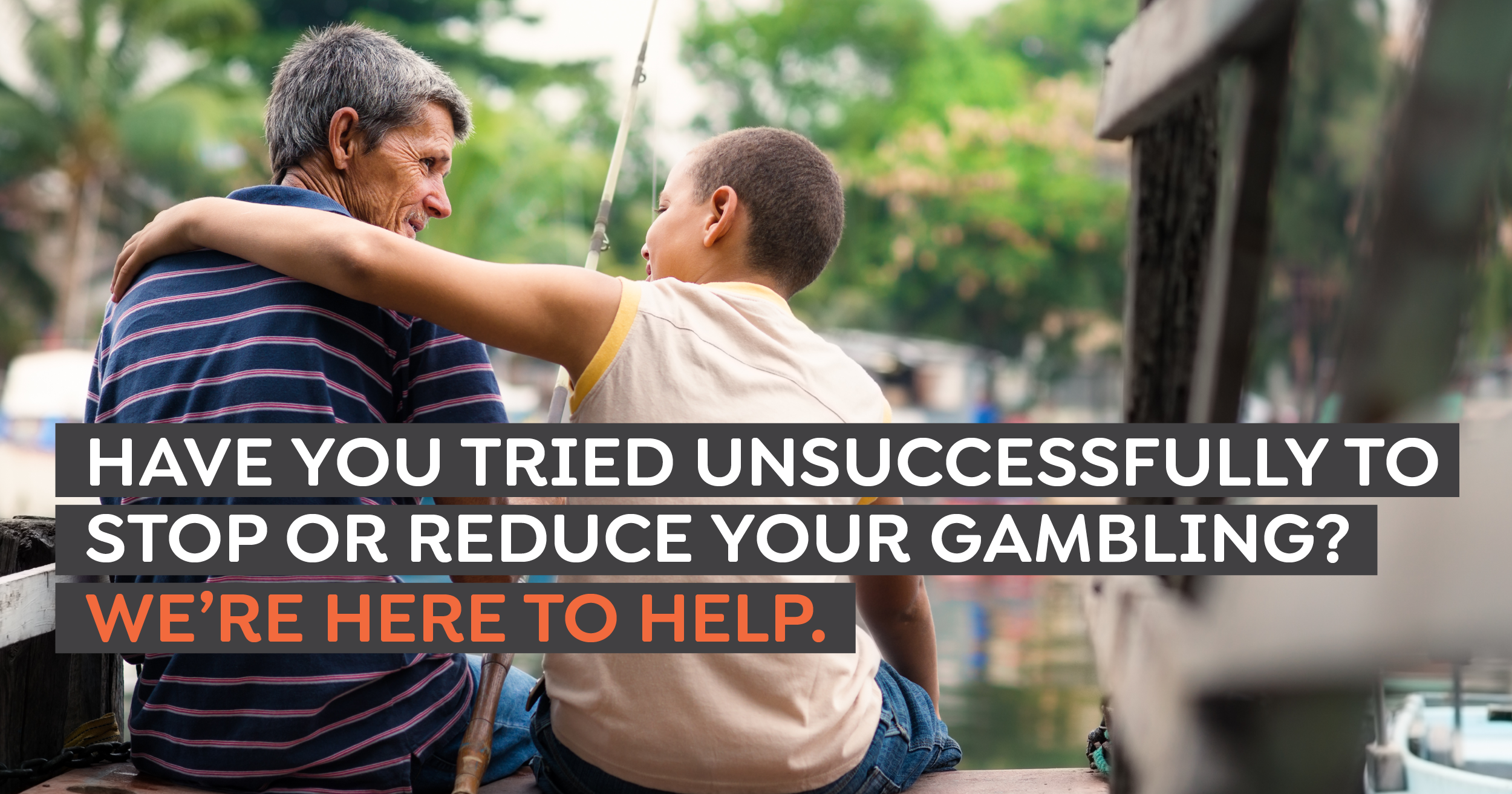
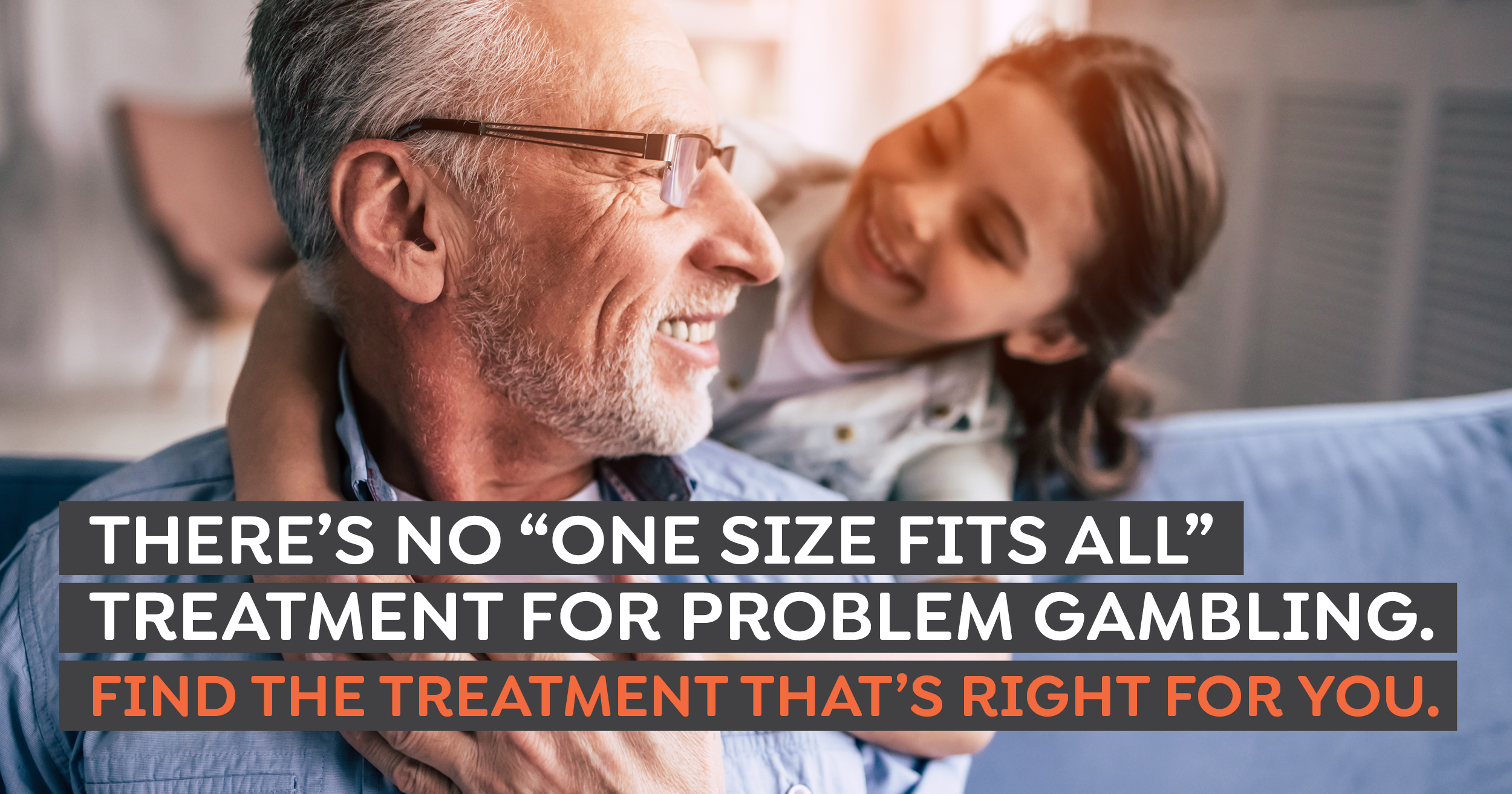
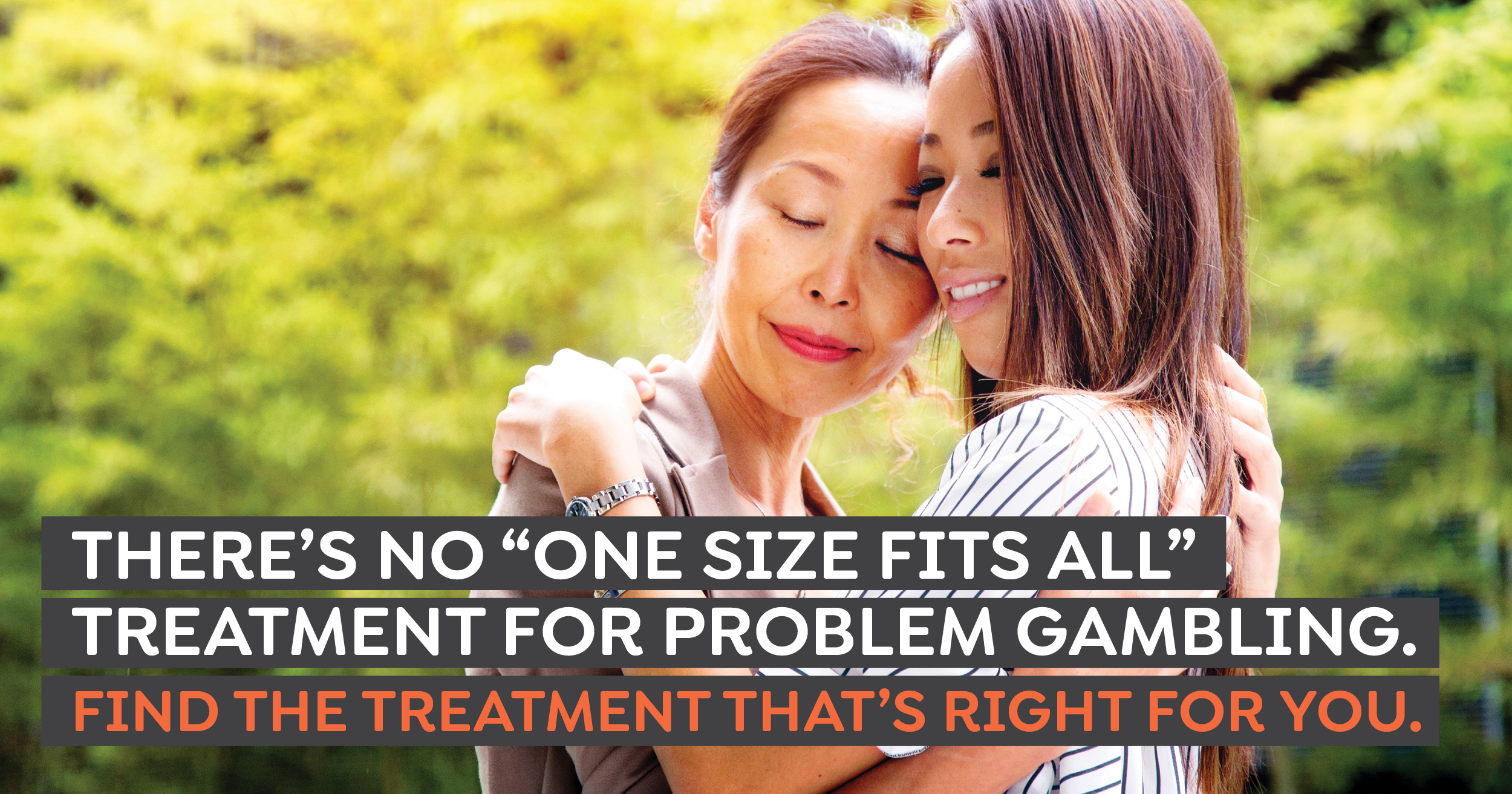
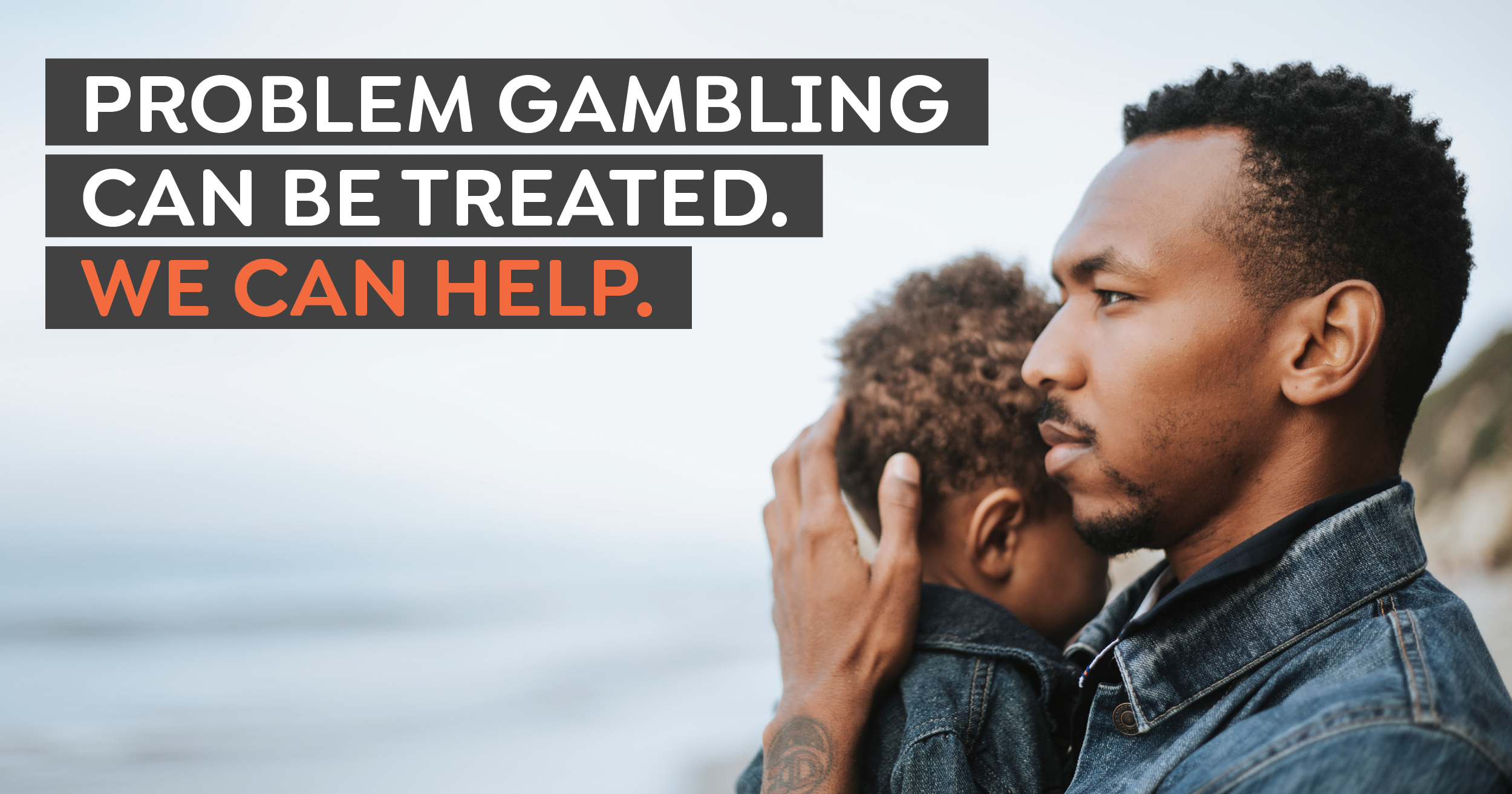
Images for Twitter (440 x 220) – Click to download all Twitter images.
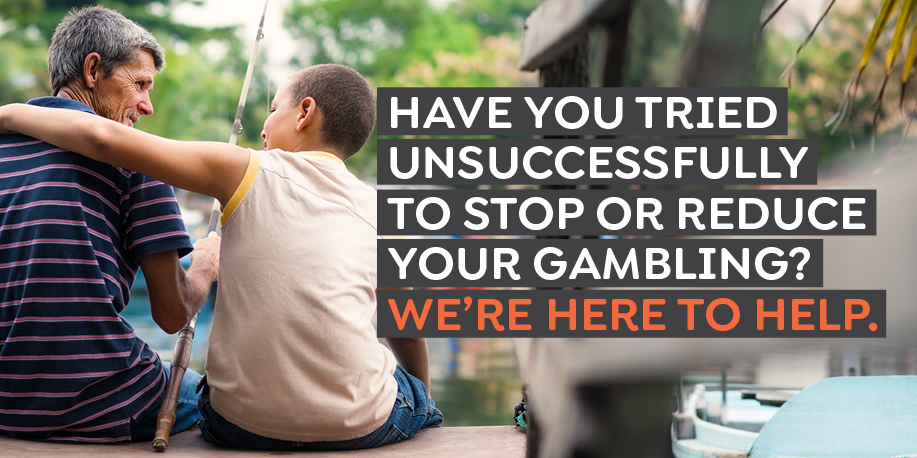
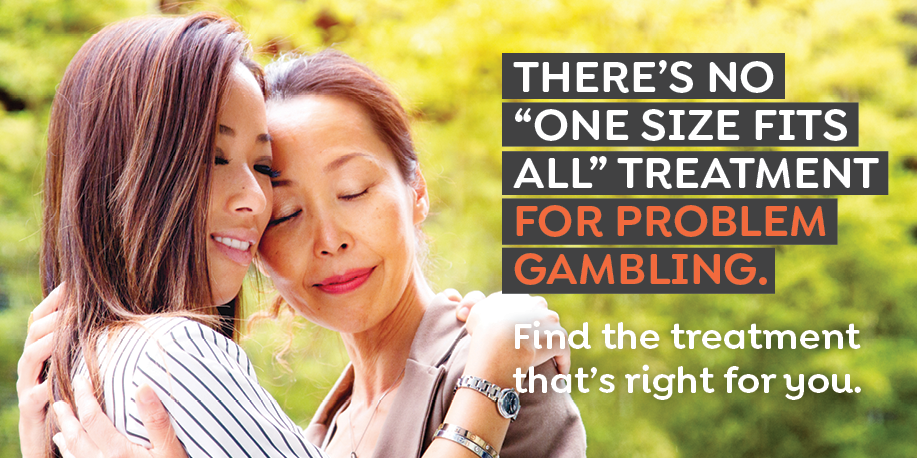
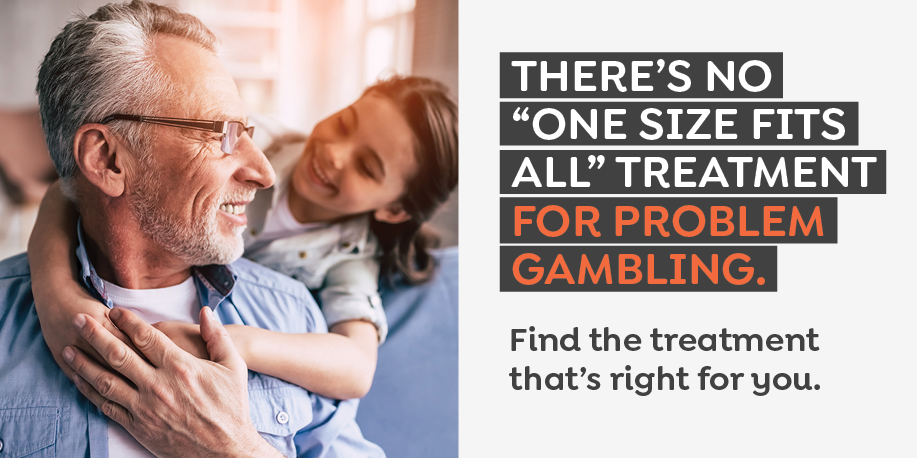
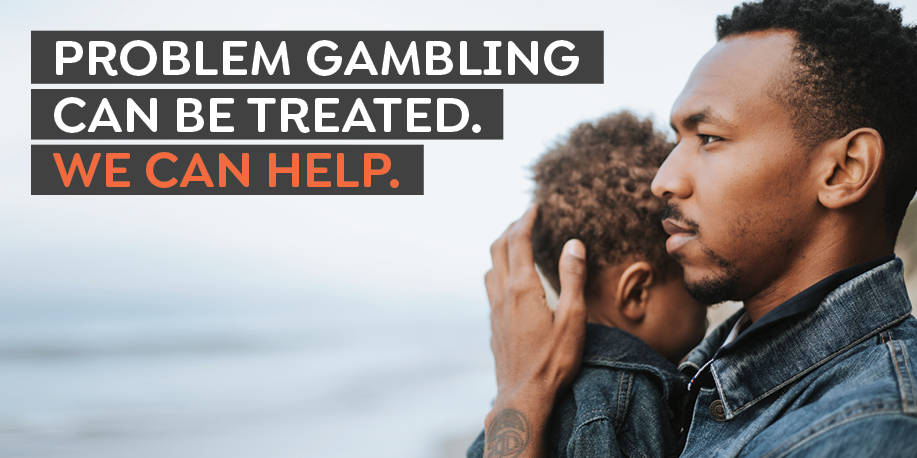
Copy for social media posts
- Problem gambling does not have to cost you the things that matter most. Learn more about treatment services that can help at [insert program link].
- You don’t have to walk the road to recovery from problem gambling alone. Learn more about our personalized treatment services. [Insert program link]
- Have you tried unsuccessfully to stop or reduce gambling? We can help. [Insert program link]
- Everyone is unique and deserves a personalized problem gambling treatment plan. Learn more about our programs and what may work for you at [Insert program link].
- Problem gambling can hurt your job, your relationships, and your opportunities. Learn more about how to take back control at [Insert program link].
- Watching a loved one struggle with problem gambling can leave us feeling helpless. Learn how you can help them get support at [Insert program link].
- Has gambling caused you financial trouble or made you lie to people you care about? Learn more about the signs of problem gambling and how we can help at [Insert program link].
- When gambling becomes a problem, we can help. Learn more about the signs of problem gambling and how treatment can work for you at [Insert program link].
- Problem gambling requires support and treatment like any addiction. Learn about services that can lead you to recovery at [Insert program link].
Print materialsThis bilingual postcard encourages people experiencing problem gambling in themselves or someone they care about to reach out for help. It includes the URL for the Massachusetts Problem Gambling Helpline website* and The Helpline phone number. The postcard is available in English/Spanish, English/Portuguese, English/Chinese (simplified), and English/Vietnamese. All versions can be ordered from the Massachusetts Health Promotion Clearinghouse through this link.
*Please note: Since development of this postcard, a new MA Problem Gambling Helpline website was launched. You are still able to navigate to the MA Problem Gambling Helpline website through the URL listed on the postcard and the phone number on the postcard is correct. An updated postcard will be made available when possible.